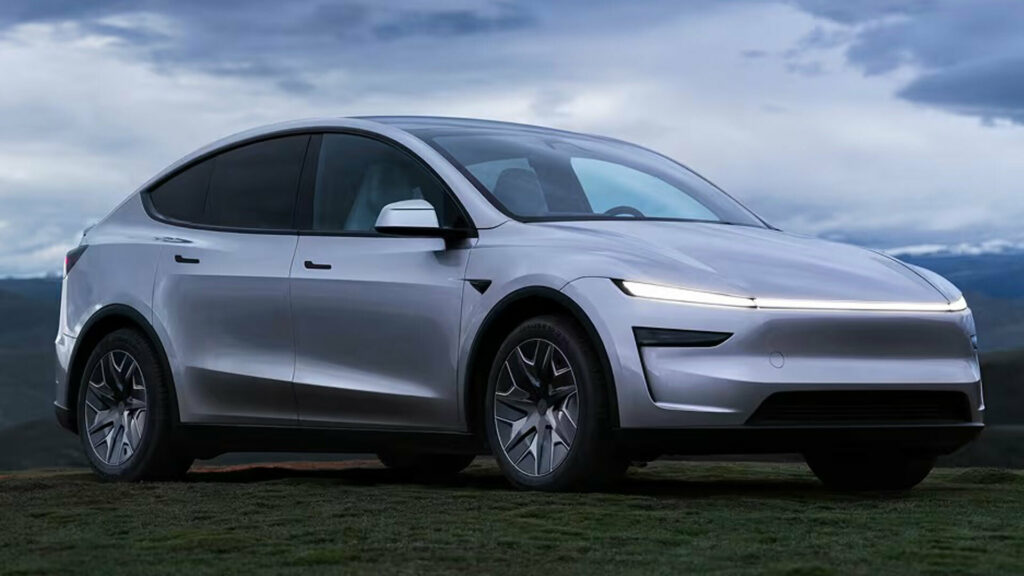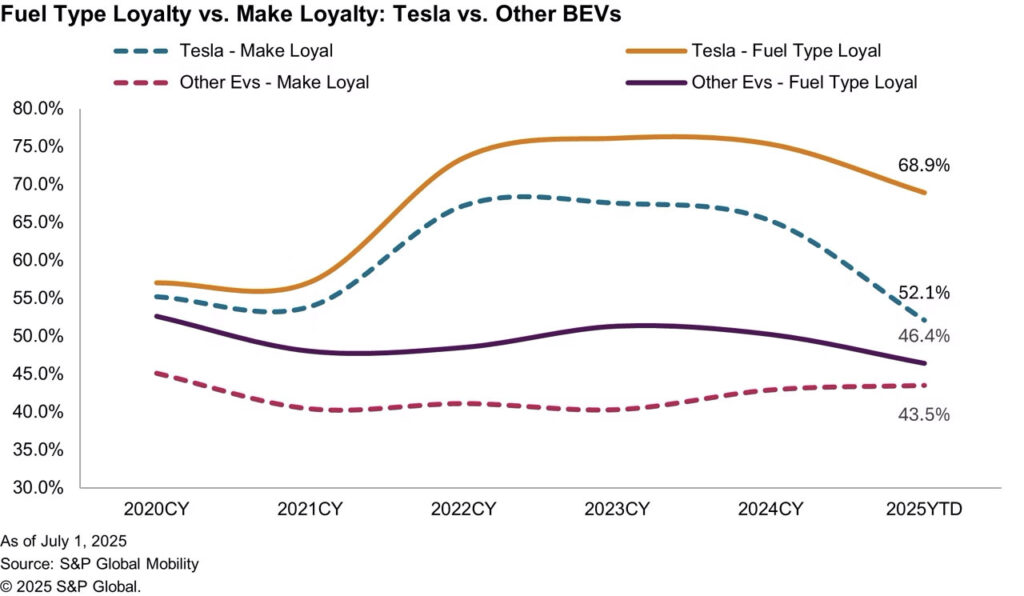Decline in Loyalty to Tesla
Not so long ago, automakers with long histories were trying to keep up with Tesla, as more and more buyers were abandoning internal combustion engine (ICE) vehicles in favor of electric models from the California brand. However, the situation is now changing. Fresh data indicates a noticeable decline in brand loyalty to Tesla, with former owners not only switching to competing brands but sometimes completely abandoning electric vehicles in favor of diesel pickups from manufacturers like Chevrolet and Ford.
S&P Global Research
New research from S&P Global shows that in the second quarter of 2025, brand loyalty to Tesla in the U.S. fell by 9.4% compared to the previous year, reaching 58.1%. This figure was lower than that of Ford (59.6%) but higher than Chevrolet (58%), Toyota (57.3%), Honda (54.9%), and Mercedes-Benz (54.2%).
Outdated Model Lineup and Image Problems
According to S&P Global, loyalty to Tesla began to decline at the beginning of this year, partly due to an outdated model lineup and reliance on only two mass-market models—the Model 3 and Model Y. Both have been updated, but their foundations date back several years. Without new models, buyers are increasingly turning their attention to competing brands that offer a wider selection. Furthermore, the political views of CEO Elon Musk are turning away many customers.

Switching to Other Fuel Types
Analysts emphasize that the decline in loyalty to Tesla is not simply a rejection of electric vehicles, but rather a reflection of buyers migrating to brands that offer more diverse models and equipment. BMW, Mercedes-Benz, and Toyota are among the main winners when buyers of Tesla sedans and SUVs switch to them, highlighting the limited choice at Tesla.
Of those abandoning Tesla, 68.9% chose another electric vehicle as their next car in the first half of this year, down from a peak in the mid-70% range in 2023. The remaining 31.1% changed fuel type: 28.2% switched to hybrids, and an unexpected 2.9% opted for diesel, which is an unusual step for former electric vehicle drivers.

Loss of Momentum Among Repeat EV Buyers
Overall, loyalty to battery electric vehicles (BEVs) fell to 58.7% in 2025, compared to nearly 68% two years ago, indicating a broader slowdown in repeat electric vehicle purchases. Traditional models with internal combustion engines still have the highest loyalty—around 84%, although this figure is gradually declining. Hybrids are gaining momentum but still lag behind ICE and BEV.
In contrast, loyalty among buyers of other electric brands is growing. Fuel-type loyalty for non-Tesla EVs increased to 46.4%, compared to approximately 45% in 2020, suggesting that enthusiasts outside the Tesla ecosystem are more committed to staying with electric vehicles. Overall EV brand loyalty has also improved, rising to 43.5% compared to around 40% in 2021, thanks to a wave of more competitive models.

Advantages Over Price
One key detail stands out: price is not the main factor. Data shows that most households moving away from Tesla are buying cars in the $60,000 to $75,000 range, indicating that the trend is more about product advantages and diversity than saving money.
“Tesla brand loyalty is still strong, but it is no longer the standard,” stated S&P Global. “In a more competitive, body-style-rich EV market, even category leaders must meet higher standards.”

Amid growing competition, Tesla faces challenges related not only to technical aspects but also to changes in consumer preferences. Some former electric vehicle enthusiasts are returning to familiar technologies like diesel engines, which may indicate temporary difficulties or dissatisfaction with charging infrastructure. However, the overall dynamics suggest that the electric vehicle market continues to evolve, and even players like Tesla must adapt to new realities to maintain leadership positions.


 by
by 
